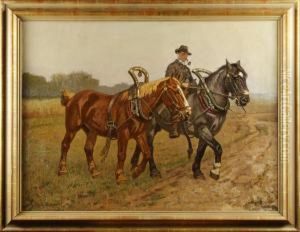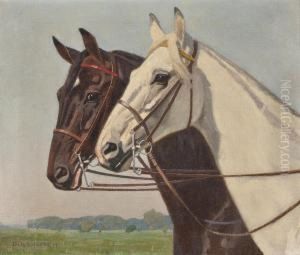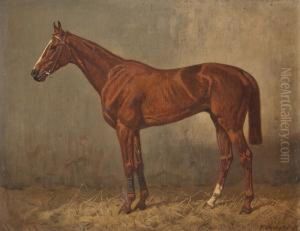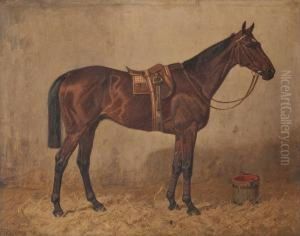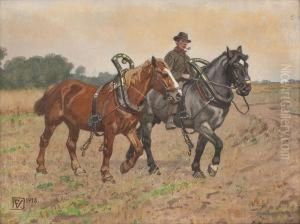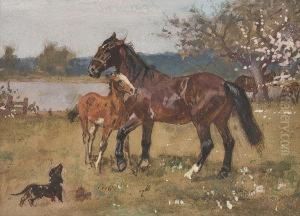Fritz Volkers Paintings
Fritz Völkers was a German artist known for his landscape paintings, born in 1912 in the town of Hitzacker in Lower Saxony, Germany. His work is characterized by its attention to the natural beauty of the countryside, often rendering scenes of northern Germany with a keen eye for light and atmosphere. Völkers was part of a tradition of German landscape painters, and though he may not be as internationally renowned as some of his contemporaries, his work remains appreciated for its serene depiction of rural life and nature.
In his youth, Völkers received training in the arts, although specific details about his education are not widely documented. He started painting at a time when Germany was going through significant political and social changes, between the two World Wars. Despite the tumultuous environment, Völkers devoted himself to capturing the timeless and tranquil aspects of the German landscape.
Throughout his career, Völkers remained relatively localized in his subject matter, focusing on the landscapes near his hometown and other rural areas of northern Germany. His paintings often depict the lowlands, rivers, and farmlands typical of this region, rendered in a realistic style. Völkers' ability to capture the changing seasons and the varying moods of the countryside won him a loyal following.
Völkers continued to paint throughout his life, maintaining a quiet but consistent presence in the German art scene. He passed away in 1976, leaving behind a body of work that continues to be of interest to collectors and enthusiasts of German landscape painting. While not a revolutionary figure in the art world, Fritz Völkers' dedication to his craft and his love for the German landscape is evident in his serene and carefully composed paintings.
